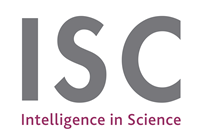
At ISC Intelligence in Science we try to see the world differently: we work with leaders and aspiring leaders who individually and collectively bring energy, vision and solutions to old and new challenges. We search for and find ways to bring stakeholders together at the global level.
Global science
Global science collaboration is important because it allows scientists from different countries to share ideas, resources, and expertise to address complex scientific problems that cannot be solved by any one country alone. It also promotes cross-cultural understanding and international cooperation, and can lead to more efficient and effective use of limited research funds. Additionally, global collaboration can facilitate the transfer of scientific knowledge and technology between developed and developing countries, helping to bridge the global divide in scientific capacity and improve the overall state of scientific knowledge worldwide. We give a voice to global science at the Science Summit at the United Nations General Assembly: the next Science Summit will take place from 12-29 September 2023 during the United Nations General Assembly (UNGA78). ISC manages the AERAP Africa-Europe Science Collaboration platform.
Inclusivity
Inclusivity is important for global science because it ensures that a diverse range of perspectives, ideas, and experiences are considered when conducting research. This can lead to more innovative and robust scientific discoveries. Additionally, inclusivity can help to address historical imbalances in access to scientific resources and opportunities, which have disproportionately affected people from marginalized communities.
In terms of collaboration with developing nations, inclusivity can be achieved by actively seeking out and involving researchers and institutions from these countries in global scientific initiatives. This can be done through partnerships, capacity building programs, and other forms of collaboration. Additionally, by providing resources and support for scientists in developing nations, it can help to level the playing field and enable them to contribute their unique perspectives and ideas to global science.
Overall, inclusivity in global science can lead to more equitable and effective collaboration with developing nations and ultimately, can help to drive progress and innovation in science for the benefit of all
The enabling policy and regulatory environment for science
Open access to scientific research: Governments and funding agencies should support and promote open access policies that make scientific research freely available to the public.
Intellectual property protection: Policies should be in place to protect the intellectual property rights of scientists and institutions while also allowing for the sharing of data and resources.
International agreements: Governments should negotiate and enter into international agreements that facilitate collaboration between researchers from different countries, such as the sharing of research facilities and equipment.
Funding for international collaboration: Governments and funding agencies should provide financial support for international collaboration, including travel and other expenses related to working with researchers from other countries.
Encouraging diversity and inclusion: Policies and regulations should be implemented to promote diversity and inclusion in science, including the participation of underrepresented groups in science.
Responsible research conduct: Policies and regulations should be in place to ensure that all research is conducted in an ethical and responsible manner.
Data protection and sharing: Governments should ensure that data protection and sharing laws are in place to protect the privacy and security of research data while also making it accessible to other researchers
Access to data
The General Data Protection Regulation (GDPR) in the European Union (EU) establishes strict regulations for the handling and processing of personal data, including requirements for obtaining consent and protecting data privacy. These regulations may make it more difficult for researchers, including those in less developed nations, to access personal data for research purposes. However, the GDPR also includes provisions for scientific research, including the ability for researchers to obtain data for scientific research with the appropriate safeguards in place. Additionally, the GDPR allows for the processing of personal data for research purposes when the processing is necessary for the performance of a task carried out for the public interest.